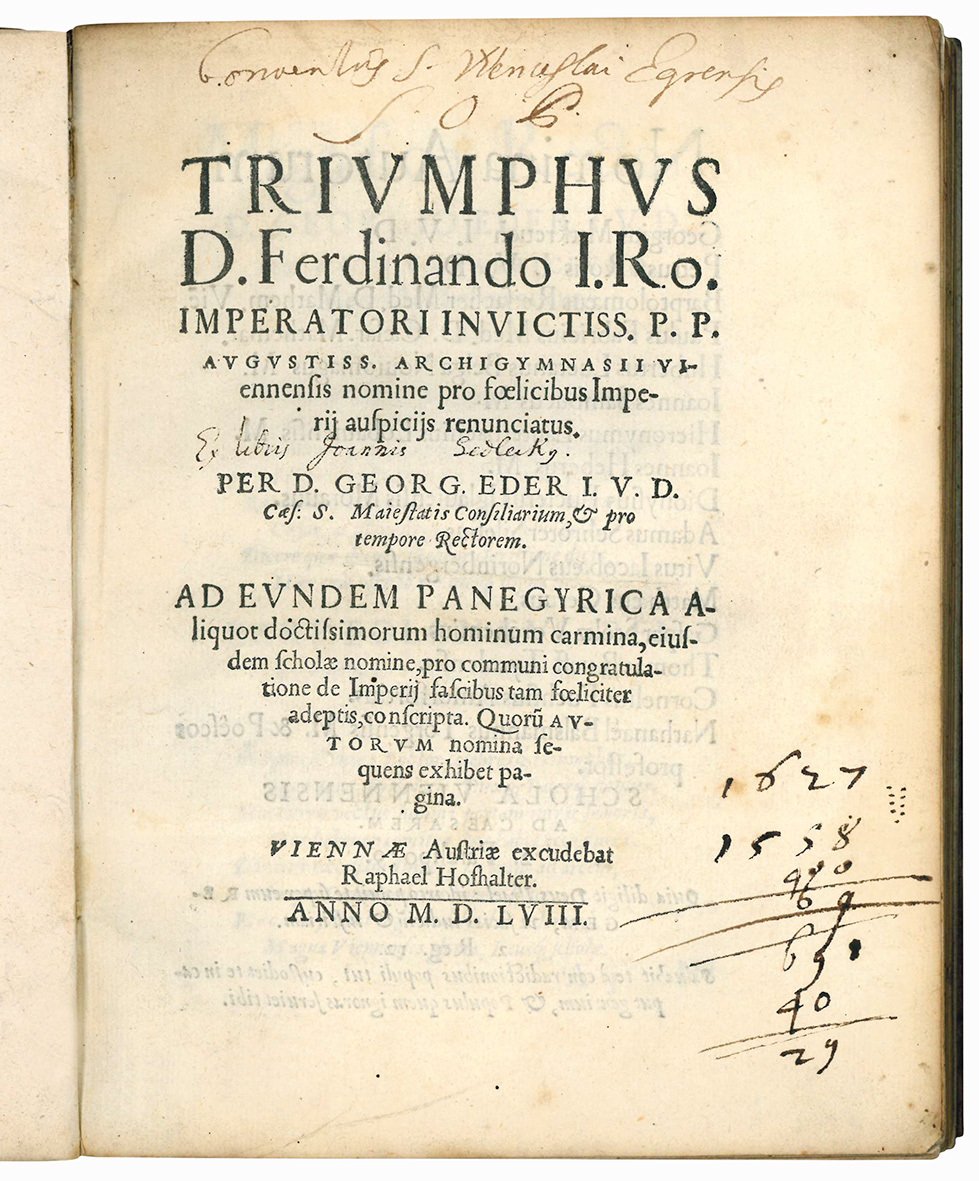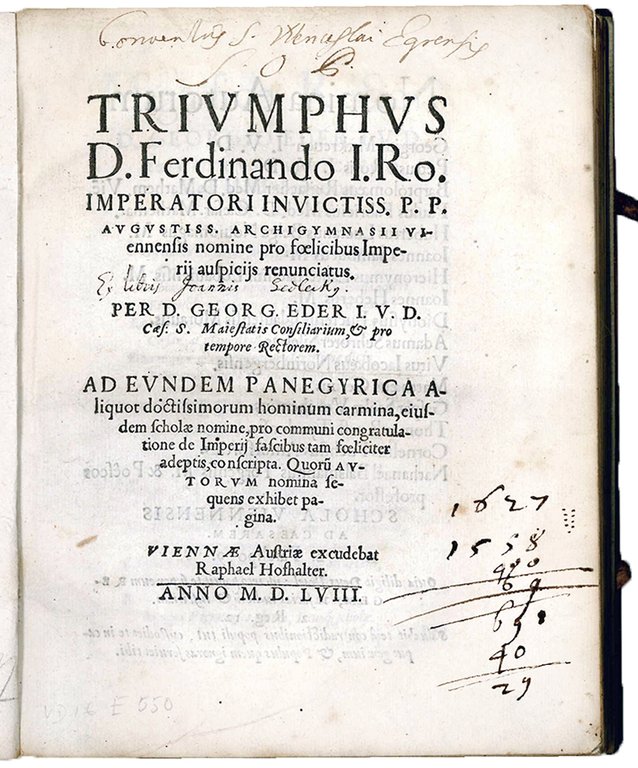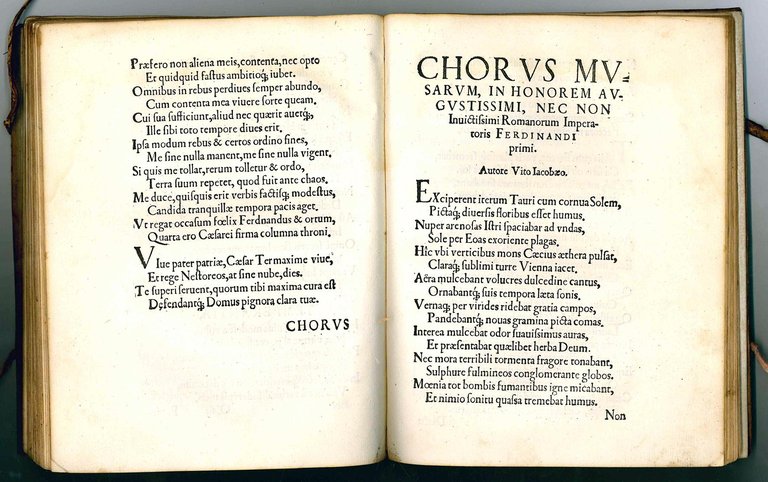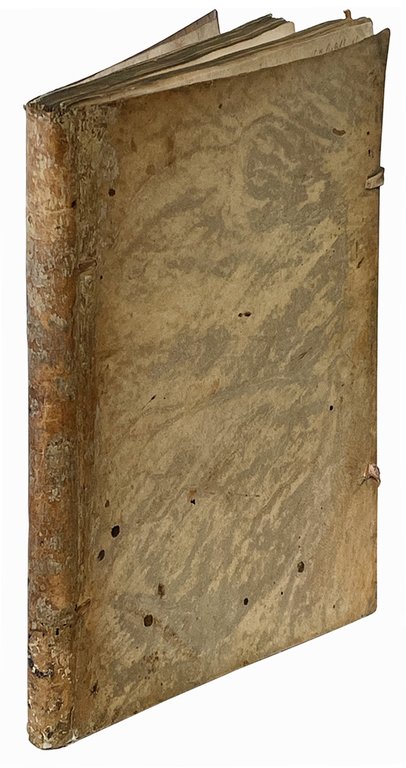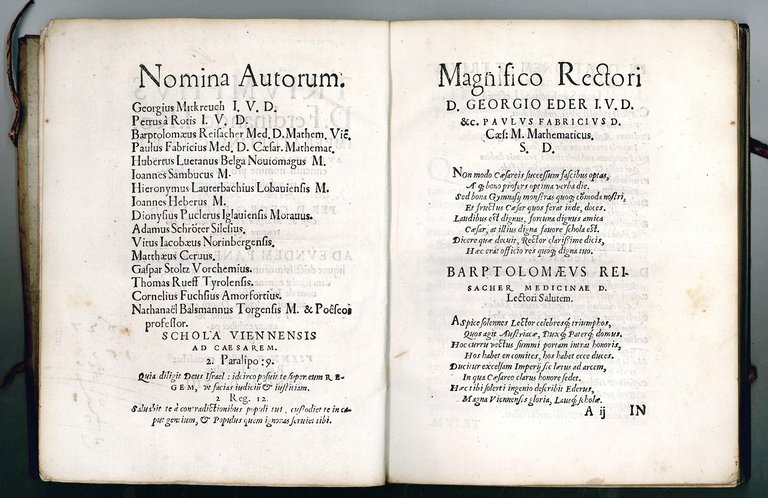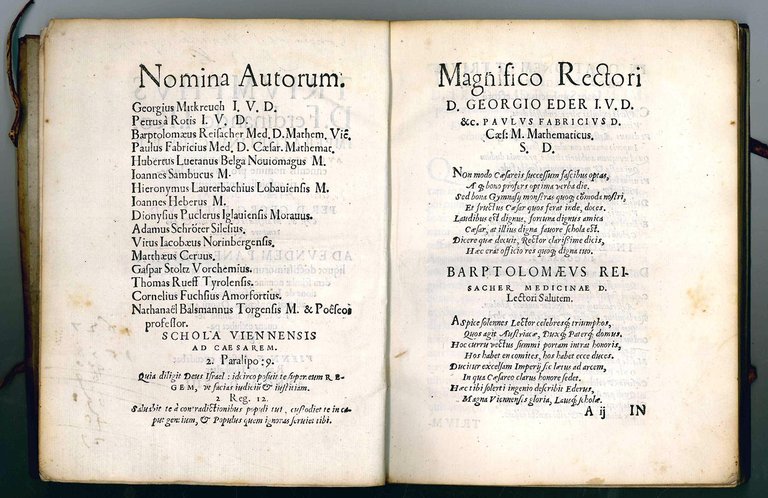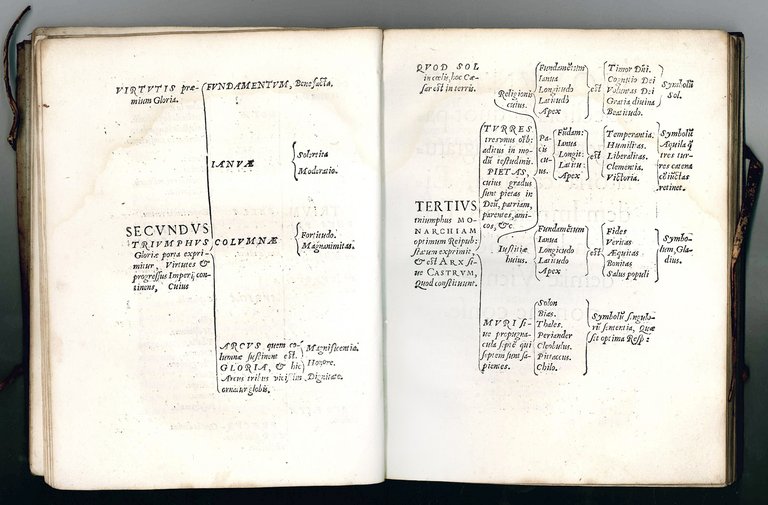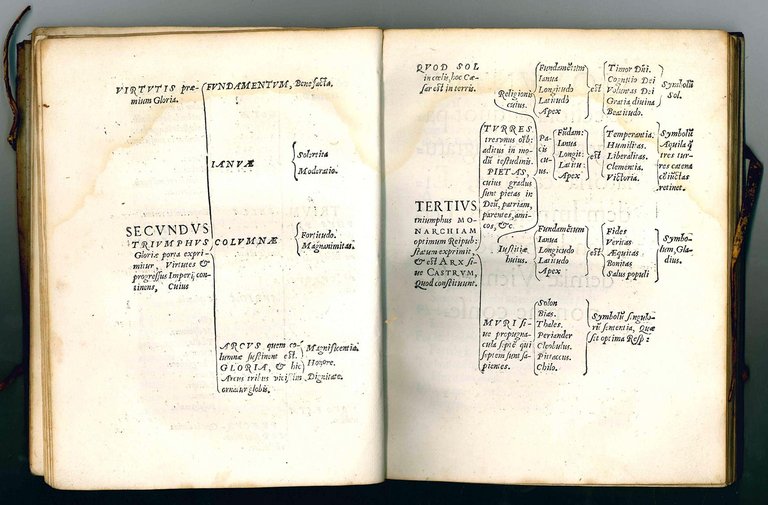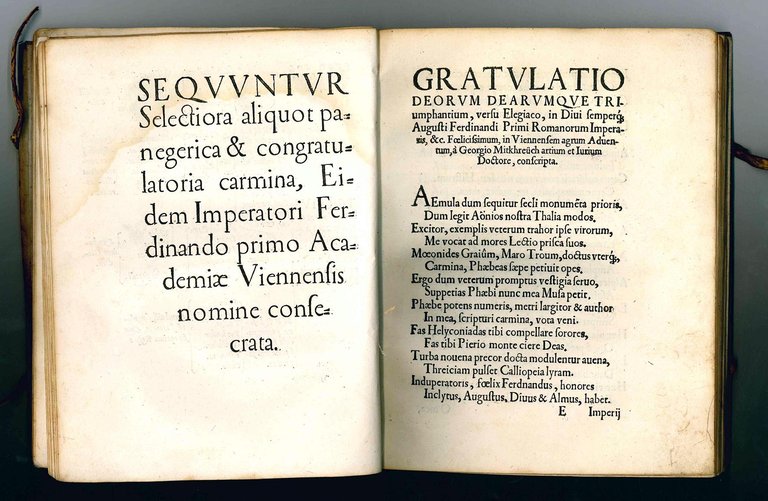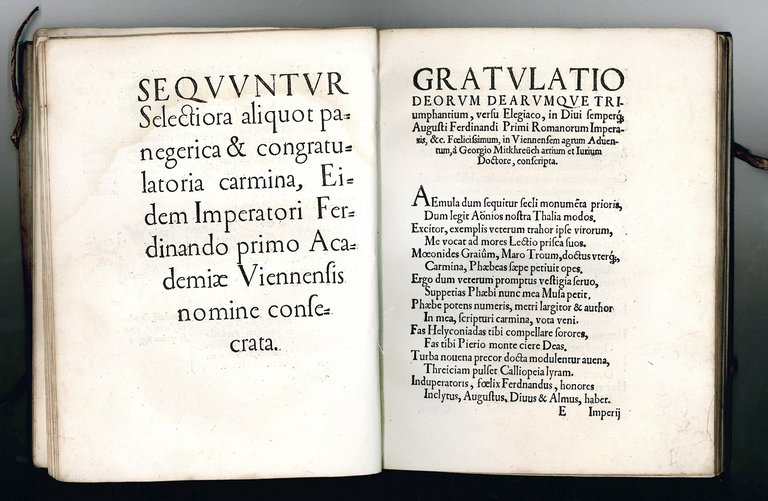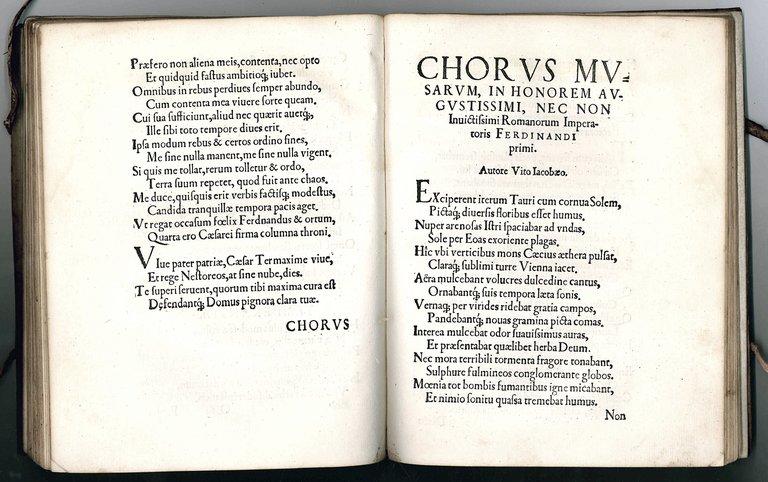Triumphus D. Ferdinando I. Ro. Imperatori Invictiss. P.P. Augustiss. Archigymansii Viennensis nomine pro foelicibus Imperij auspicijs renunciatus [...] Ad eunden panegyrica aliquot doctissimorum hominum carmina
Triumphus D. Ferdinando I. Ro. Imperatori Invictiss. P.P. Augustiss. Archigymansii Viennensis nomine pro foelicibus Imperij auspicijs renunciatus [...] Ad eunden panegyrica aliquot doctissimorum hominum carmina | Libri antichi e moderni | EDER, Georg (1523-1587)
Triumphus D. Ferdinando I. Ro. Imperatori Invictiss. P.P. Augustiss. Archigymansii Viennensis nomine pro foelicibus Imperij auspicijs renunciatus [...] Ad eunden panegyrica aliquot doctissimorum hominum carmina
Triumphus D. Ferdinando I. Ro. Imperatori Invictiss. P.P. Augustiss. Archigymansii Viennensis nomine pro foelicibus Imperij auspicijs renunciatus [...] Ad eunden panegyrica aliquot doctissimorum hominum carmina | Libri antichi e moderni | EDER, Georg (1523-1587)
Metodi di Pagamento
- PayPal
- Carta di Credito
- Bonifico Bancario
- Pubblica amministrazione
- Carta del Docente
Dettagli
- Anno di pubblicazione
- 1558
- Luogo di stampa
- Wien
- Autore
- EDER, Georg (1523-1587)
- Editori
- Raphael Hofhalter
- Soggetto
- Quattro-Cinquecento
- Stato di conservazione
- Buono
- Lingue
- Latino
- Legatura
- Rilegato
- Condizioni
- Usato
Descrizione
4to (199x150 mm). [76] leaves. Collation: A-T4. This is one of the copies without the leaflet with a supplementary poem pasted on leaf F1r (basically, beside this copy, only two of the five known copies have this addition). On the title page ownership's inscriptions “Conventus S. Wenceslai Egrensis” and “Ex libris Joannis Sedleckij”. Contemporary limp vellum (soiled), ties, new endpapers, some light damp stains throughout, but a good copy.
FIRST EDITION. Soon after the death of the humanist and poet Konrad Celtes in 1508, the Collegium Poetarum, which was called into being by him in Vienna and which had the right of conferring the laureateship, came to an end. Efforts were made in the middle of the century to restore the Collegium, especially by some influential imperial councillors such as Jacob Jonas, Georg Sigmund Seld, Sigmund von Herberstein and Georg Eder. It was finally re-established in 1558 under the head of Nathanael Balsmannus, a member of the Collegium Archiducale.
The first important publication of the new Collegium Poetarum was printed on the occasion of the coronation of Ferdinand as emperor in Frankfurt. His son Maximilian organized him a pompous reception at Vienna, followed by various festivities. A deputation of the university met the newly created emperor on sumptuously decorated ships on the Danube near Klosterneuburg and welcomed him with poetical eulogies. The emperor was then escorted to Vienna and enthusiastically welcomed in the cathedral of St. Stephen by the inhabitants of Vienna. The following festivities also included the coronation of several poets, e.g. Hieronymus Lauterbach from Bohemia and Vitus Jacobaeus from Nuremberg. Not only verses from both the newly created poets laureate are included in this volume, but also from numerous professors from various faculties of the university such as Georg Mitkreuz Petrus a Rotis, Bartholoma?us Reisacher, Paul Fabricius, Johannes Sambucus, Johannes Heber, etc. (cf. J. v. Aschbach, Geschichte der Wiener Universität, III, Wien, 1865, pp. 57-62).
“Eine eigene Publikationsgattung bildeten die aus Anlass des Herrschereinzuges verfassten Casualcarmina, die auf Veranlassung ihrer Autoren häufig gedruckt und den Herrscher bzw. Anderen Vertretern der Obrigkeit gewidmet und überreicht wurden. Casualcarmina erschienen sowohl einzeln als Flügblätter oder Flugschriften, als auch in Form von Sammelwerken, die dann mehrere, von unterschiedlichen Autoren verfasste Gedichte umfassten [...] Gleichzeitig [1558] gab der kaiserliche Rat und Rektor der Wiener Universität, Georg Eder, eine ca. 140 Seiten starke Sammlung der bei dieser Gelegenheit [Einzug von Ferdinand I in Wien] von humanistischen Gelehrten aus dem Umkreis der Wiener Universität wie etwas Hieronymus Lauterbach, Adam Schröter, Veit Jacobaeus und Bartholomaeus Reisacher verfassten Casualcarmina” (H. Rudolph, Humanistische Feste? Habsburgische Festkultur in der zweiten Hälfte des 16. Jahrhunderts, in: “Funktion des Humanismus. Studien zum Nutzen des Neuen in der humanistischen Kultur”, T. Maissen, ed., Göttingen, 2006, pp. 186-187).
Georg Eder was born in Freising (Bavaria) and studied at Cologne and later law at Vienna, where he held for several times the position of rector of the university and of the dean of the faculty of law. He also became a member of the imperial court of justice. His repeated sharp attacks on the fundamental principles of Lutheranism created some stir even in circles of the imperial court for its harsh language and caused him the prohibition to publish works on religious matter. His most important work, however, remains the first history of the University of Vienna (1559) (cf. K. Mühlberger, Bildung und Wissenschaft. Kaiser Maximilian und die Universität Wien, in: “Kaiser Maximilian II: Kultur und Politik im 16. Jahrhundert”, F. Edelmayer, ed., Wien, 1992, pp. 224-226).
VD 16, E-550; Index Aureliensis, 159.046; Universal STC, no. 698291; M. Denis, Wiens Buchdrucker Geschichte bis M.D.LX, W
